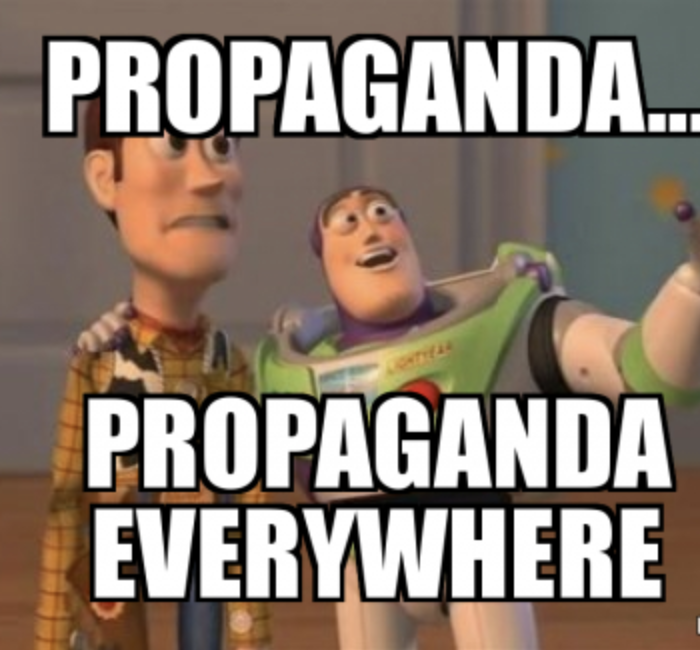Explore and reflect on how college and university faculty engage in teaching about propaganda with a diverse group of faculty experts
 DATE: Tuesday, October 27
DATE: Tuesday, October 27
TIME: 12 pm - 1 pm EST/ 9 AM PST
LOCATION: Online. Register for the meeting here.
In this dialogue, we reflect on the following questions:
1. What do you love most about teaching propaganda? What is the biggest challenge you face?
2. How do you organize your course? Why have you organized it this way?
3. What is 1 assignment that you find most valuable for your students?
As part of the meeting, we will use small group breakout rooms to discuss and share ideas. We will learn how disciplinary paradigms influence teaching and learning about this important topic and examine some of the many instructional strategies that educators use to engage and challenge learners.
PARTICIPANTS
Anthony Nadler is an associate professor of Media and Communication Studies at Ursinus College and fellow at Columbia University's Tow Center for Digital Journalism. He is the author of Making the News Popular (University of Illinois Press, 2016) and co-editor with AJ Bauer of News on the Right: Studying Conservative News Cultures (Oxford University Press, 2019). His research focuses on conservative media cultures, media and populism, and debates surrounding targeted advertising and civic culture in a digital media landscape.
G. Thomas Goodnight is a Professor at the Annenberg School of Communication and Journalism at the University of Southern California. Propaganda is defined as an assembly of techniques that change over time to suite the interests of the state and market. An ancient art, carved in the stele of imperial conquest, propaganda is a janus faced endeavor facing toward domestic audiences as well territories, allies, neutrals, and enemies abroad. Goodnight deploys a rhetorical approach derived from Aristotle's politics concerning the strategic options of the hegemon. Goodnight admires the Scandinavian and Balkan states for their education on propaganda.
Glenn Kranking is an Associate Professor in History and Scandinavian Studies, and the Director of Russian and East European Studies at Gustavus Adolphus College in Minnesota. He teaches courses on Scandinavian, Russian, and European history, as well as an upper level history seminar on propaganda in the modern world. He has been interested in propaganda since researching the (failed) Soviet propaganda campaign aimed at the Swedish minority population in Soviet-occupied Estonia from 1940-1941.
Renee Hobbs is the author of Mind Over Media: Propaganda Education for a Digital Age, a book that examines the variety of pedagogical strategies used by educators in K-12 and college settings to teach about contemporary propaganda. As an expert on digital and media literacy, she has written over 150 scholarly and professsional articles and is the author of 9 books and numerous digital platforms, curriculum resources, video and educational games to advance digital and media literacy with learners of all ages. Her newest work, Media Literacy: Questioning the Media is a textbook for undergraduates to be published by Rowman and Littlefield in 2021.